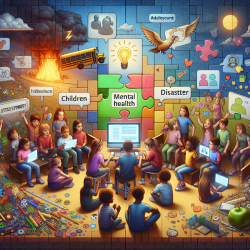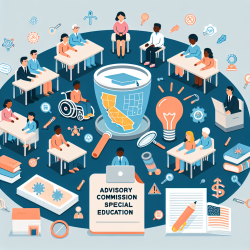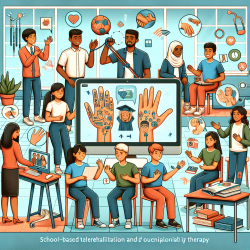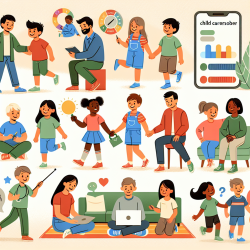As practitioners dedicated to the well-being of children, it's crucial to stay informed about the best practices for assessing mental health, especially in the aftermath of disasters. A systematic review titled "Assessment Tools for the Mental Health of School-Aged Children and Adolescents Exposed to Disaster: A Systematic Review (1988–2015)" offers valuable insights that can significantly improve our assessment approaches.
Key Findings from the Systematic Review
The systematic review analyzed 118 studies published between 1988 and 2015, focusing on the mental health of children and adolescents exposed to disasters. The review underscores the importance of using validated and reliable assessment tools to evaluate the psychological impact on young individuals.
Types of Disasters and Assessment Tools
The studies were categorized into two types of disasters:
- Type I: Natural disasters such as earthquakes, tsunamis, hurricanes, and floods.
- Type II: Man-made disasters including fires, terrorist attacks, and explosions.
The review found that a variety of scales are used to assess different psychological domains, such as PTSD, anxiety, depression, and general psychopathology. For example, the University of California at Los Angeles PTSD Reaction Index (UCLA PTSD-RI) and the Children’s Post-Traumatic Stress Disorder-Reaction Index (CPTSD-RI) were commonly used tools.
Sources of Information
Effective assessments often involve multiple sources of information:
- Self-Report: Tools like the Fear Survey Schedule for Children (FSS-C) and the State and Trait Anxiety Inventory for Children (STAI-C) are commonly used.
- Parent-Report: Parents can provide valuable insights using tools like the Center for Epidemiological Studies Depression Scale (CES-D) and the Revised Child Anxiety and Depression Scales, Parent Version (RCADS-P).
- Teacher-Report: Achenbach’s Teacher’s Report Form (TRF) is a reliable measure, though it may underestimate internalizing symptoms.
- Clinician-Administered: Direct evaluations by mental health professionals using tools like the Clinician-Administered PTSD Scale (CAPS) are highly reliable.
Implementing the Findings in Practice
Based on the systematic review, here are some recommendations for practitioners:
1. Use Multiple Assessment Tools
Given the complexity of psychological responses to disasters, relying on a single assessment tool is often insufficient. Combining self-reports, parent reports, teacher reports, and clinician-administered tools can provide a comprehensive understanding of a child's mental health.
2. Focus on Validated and Reliable Tools
Tools like the UCLA PTSD-RI and CPTSD-RI have been validated across different languages and settings, making them cost-effective and user-friendly options for assessing children and adolescents.
3. Tailor Assessments to the Type of Disaster
Different types of disasters may require specific assessment tools. For instance, tools that assess PTSD and depression are particularly useful following natural disasters like earthquakes and tsunamis.
4. Consider Developmental and Cognitive Factors
When selecting assessment tools, consider the child's developmental stage and cognitive capacity. Self-report questionnaires may not always capture the full extent of a child's symptoms, especially in younger children.
5. Monitor and Follow-Up
Regular monitoring and follow-up assessments are crucial for tracking the long-term psychological impact of disasters on children and adolescents. Early interventions can significantly reduce the prevalence of psychopathological problems.
Encouraging Further Research
While the systematic review provides a solid foundation, there is still much to learn about the best practices for assessing and supporting the mental health of children exposed to disasters. Practitioners are encouraged to engage in further research and contribute to the development of more effective assessment tools and interventions.To read the original research paper, please follow this link:
Assessment Tools for the Mental Health of School-Aged Children and Adolescents Exposed to Disaster: A Systematic Review (1988–2015).










